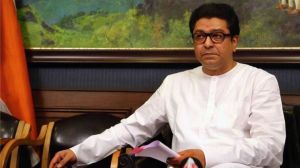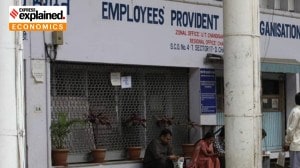Why the Congress can8217;t do it
In February 1991, the Congress leadership began its well-rehearsed moves to prise the Chandra Shekhar ministry out of office. Horrified a...

In February 1991, the Congress leadership began its well-rehearsed moves to prise the Chandra Shekhar ministry out of office. Horrified at the thought of a general election, a band of about 120 Congress members of Parliament descended upon the late Rajiv Gandhi. He was at his charming best.
8220;No, there won8217;t be any polls right now,8221; he soothed them, 8220;We are going to form the next government.8221; It wasn8217;t a case of events overtaking the man, but a deliberate fib to keep his flock together. So convincing was he that a couple of benighted souls actually ordered bandh-galas to be properly robed for the swearing-in ceremony. History is repeating itself today, with the addendum that the Congress High Command has succeeded in bamboozling not just its own MPs but also the leaders of the erstwhile United Front with the addition of Jayalalitha and Dr. Subramanian Swamy.
The Congress High Command does not want to form an alternative ministry in the life of this Lok Sabha. And the brains-trust is quitecorrect: there is no earthly reason why the Congress should take on the burden. A general election is the best thing that could happen for the party right now. But the Congress cannot afford to say so openly for various reasons.
For one thing, the threat of elections would send the waverers straight back into the embrace of the BJP assuming it wants them. For another, it doesn8217;t want to approach the people with the reputation of a party that precipitated the third general election in three years. The objective of the current exercise, all the comings and goings, the farce of consultations with potential allies, is to convince people that it is the obduracy of the smaller parties which stands in the way of a non-BJP ministry.
The tactics are quite simple. The Congress has placed just two demands before the rest of the Opposition. First, Sonia Gandhi alone, and nobody else, shall be the prime minister. Second, it must be a minority Congress government, supported from outside by the rest of the rabble. Thecumulative effect is to scupper any alternative ministry unless the smaller parties eat crow.
For various reasons 8212; personal ambitions and/or the pushes and pulls of regional politics 8212; the lesser parties are reluctant to accept a purely Congress administration. Mulayam Singh Yadav, for instance, knows that his voters are drifting back to the Congress fold; he does not want to further the process by legitimising the Congress claim to be the chief shield against the BJP 8212; even in Uttar Pradesh. And how about Jayalalitha who made it a point of prestige to have as many ministers in the Union Cabinet as the DMK-TMC combine had in the days of the United Front? How would she like hearing that Tamil Nadu isn8217;t to have a single minister in Delhi?
Why is the Congress so reluctant to assume power at the head of a coalition? Simple, the Congress has neither the experience nor the inclination. For all its boast of having the know-how to govern, the Congress has absolutely no experience of running a coalition sinceIndependence. The last such experiment was before Independence, the Interim Government of 1946-47, alongside the Muslim League.
By all accounts it was a torrid time for all concerned, with ministers meeting in separate factions. It convinced even Sardar Patel that it was impossible to work with another party, making Partition inevitable. Since then, the Congress has traditionally shied away from coalitions in Delhi at any rate. Indira Gandhi preferred the virtues of remaining alone from 1969 to 1971, and so did Narasimha Rao in the first years of his rule.
Coalitions have been tested with varying degrees of success in the states. But I can8217;t think of too many that have been any good. P. A. Sangma won accolades as the Speaker of a deeply divided Lok Sabha, but even his talents couldn8217;t keep a coalition government going when he was chief minister of Meghalaya. The sole exception to the rule is Kerala. But it took the Congress about a decade and a half to grasp the 8220;dharma of coalitions8221;. Sonia Gandhidoesn8217;t have anywhere near that kind of time, and nor, I assume, are any Congressmen from Kerala being tipped off as potential prime ministers.
But it would be hard to run a coalition in the twelfth Lok Sabha even given the best of intentions. There are just too many antagonisms involved 8212; the TMC vs the AIADMK, Mayawati vs Mulayam Singh Yadav, the Janata Dal vs the Rashtriya Janata Dal8230; How long can a government last, especially if its majority is a wafer-thin margin of one vote?
No, a general election really is the best choice for the Congress, as the party High Command realised several months ago. The party was content to let the Vajpayee ministry rest in place as long as it lurched from one crisis to another, with the onion fiasco being the utter nadir of the BJP8217;s fortunes. But a combination of bus diplomacy and the Budget to the BJP8217;s credit and the havering over Bihar on the debit side of the Congress ledger have convinced the Congress that it is better to go to the polls as soon aspossible.
What is the point in letting Atal Behari Vajpayee gain in stature while simultaneously exposing Sonia Gandhi8217;s limitations? As far as the Congress is concerned, it is better for her to make mistakes when she is safely ensconced in Race Course Road. I am not being rude by the way, everybody makes the occasional error when they are new to the job.
The Congress certainly cannot do worse than it did in 1996 and 1998, and in all probability will do much better 8212; at the expense of the smaller parties. The longer the party waits, the worse its chances. The odds of a Congress victory certainly won8217;t improve as head of a fractious coalition or an unstable minority ministry, or for that matter if the Vajpayee ministry is restored.
The smaller parties may swallow the thought of yet another Nehru-Gandhi as prime minister though the RSP and Forward Bloc seem to disagree. But support from outside 8212; that may be unacceptable not just to the Third Front but to the President as well. I have been hearingof a general election tentatively scheduled for winter. Personally, I think this is being optimistic. Autumn might be a better guess given the thinking in the Congress High Command right now.
- 01
- 02
- 03
- 04
- 05































